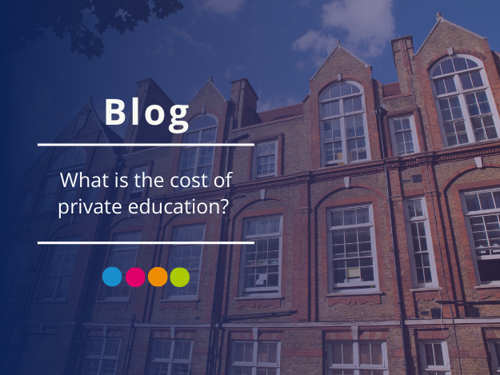
If you're thinking about sending your child to private school, one of the first things you’ll probably look at is the cost.
Private education can be expensive, but it doesn’t mean it’s out of reach. In this guide, we’ll break down the typical costs and how you may be able to fund them.
What are the average private school fees?
Private school fees can vary depending on where you live, the school you choose, and whether your child is in primary, secondary, or sixth form.
The costs could range anywhere from £10,000 to £30,000 per year for tuition. This doesn’t include other costs like uniforms, school trips, or extracurricular activities, which can add up quickly.
What else could you expect to pay for?
Private schools don’t just charge for tuition. There are other costs that can quickly mount up, so be sure to budget for these additional costs. Some of these include:
- Uniforms: Most private schools have specific uniform requirements. You’ll need to budget for the school uniform, sports kit, and other dress codes.
- School trips: Educational trips, both local and overseas, are often part of the curriculum but come at an extra cost.
- Extra-curricular activities: Many schools offer after-school clubs like music lessons, sports, and drama, but these often have extra fees.
- Boarding fees: If you’re sending your child to a boarding school, you’ll be looking at boarding fees, which can be another £10,000 to £20,000 a year on top of tuition.
- Exam fees: For exams like GCSEs or A-Levels, you may need to pay extra fees, particularly if the school doesn’t cover the costs.
It’s a good idea to check the school’s fee structure thoroughly to understand exactly what’s included in the fees and what will be charged separately.
How can I fund private school fees?
You might be wondering how to pay for all of this, especially if you don’t have thousands of pounds saved up. Don’t worry, there are several options that may help you manage the costs.
1. Start saving early
The best way to get ahead is to start saving as soon as possible. Setting up a Junior ISA or a dedicated savings account for your child’s education may help you. If you start saving early, even small monthly contributions can add up.
2. Family support
If you’re lucky enough to have family members who are willing to contribute, this can be a big help. Some families set up education funds, where grandparents or other relatives contribute to the cost of school fees.
3. Scholarships and bursaries
Many private schools offer scholarships for children who excel in academics, sports, or the arts. If your child has a particular talent, this can be a good way to reduce fees. Schools also offer bursaries for families who need financial assistance, so don’t hesitate to ask about these options. Scholarships and bursaries can sometimes cover part or even all of the fees, so it’s worth applying if you think you qualify.
4. Payment plans
Some private schools offer payment plans, allowing you to pay fees in monthly or quarterly instalments instead of one lump sum. This can make it easier to budget for school fees throughout the year. Be sure to check the school’s terms and conditions, as there may be interest or admin fees associated with payment plans.
5. Education loans
If you’re struggling to cover the cost of tuition, getting a loan could be an option. Both unsecured and secured loans may be an option that could help you pay for private school fees. Keep in mind that loans come with interest, so you’ll need to carefully consider whether this is the right choice for your financial situation. If you do decide to go down this route, make sure you’re comfortable with the repayment terms.
How to plan ahead for private school fees
The sooner you start planning for private school fees, the better. Here are a few tips to make sure you’re prepared:
- Set a budget: Look at your current financial situation and determine how much you can realistically afford to pay for your child’s education each year.
- Consider long-term costs: Private school fees tend to increase year on year, so it’s important to factor in future fee rises when planning your budget.
- Explore financial aid options: Research scholarships, bursaries, and other financial aid options well in advance. Schools often have specific deadlines for applications, so make sure you apply on time.
Summary
Private school can give your child some great opportunities, but it’s important to understand what it really costs and how you might be able to pay for it. From tuition fees to uniforms and school trips, the total cost can be more than you expect.
The good news is that there are ways to manage these costs. Starting to save early, looking into scholarships or bursaries, asking family for support, or using payment plans can help make private education a possibility.
Planning ahead and knowing your options will make it easier to decide what works best for your family and your budget.
Loans are secured against property - Think carefully before securing other debts against your home. Your home may be repossessed if you do not keep up repayments on a mortgage or any other debt secured on it.





